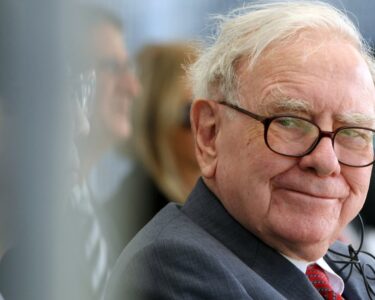GameStop and AMC shares rallied dramatically on Monday after “Roaring Kitty,” the man who inspired the epic short squeeze of 2021, posted online for the first time in roughly three years.
The post, a picture on X of a video gamer leaning forward on their chair as if to indicate he’s taking the game seriously, marked Roaring Kitty’s first post on the platform — or on Reddit— since 2021. The post has garnered 63,000 likes in 13 hours.
GameStop soared 74.4% after soaring as much as 110%. Trading in GameStop was halted multiple times due to volatility. AMC, also caught the trading frenzy, ending Monday’s session up a whopping 78.4% after doubling in price at one point. Reddit gained nearly 9%.
Roaring Kitty, whose legal name is Keith Gill, is a former marketer for Massachusetts Mutual Life Insurance. Also known as DeepF——Value on Reddit, Gill drew an army of day traders who cheered each other on and piled into the brick-and-mortar video game stock, and GameStop call options, between 2020 and 2021.
The “meme stock” frenzy involved individual investors taking aim at short sellers and hedge funds who were pessimistic about the outlook for GameStop and other companies, forcing them to cover their short positions and drive up the price of the target stocks. Currently, the short position in GameStop shares amounts to more than 24% of all its shares that are freely available to trade, also known as the float.
Gill later posted a few videos with scenes from popular TV shows and movies, but there’s no clear indication of what they mean.
GameStop was the most talked about stock on Reddit’s WallStreetBets by far on Monday, with more than 600 mentions in the last 24 hours, surpassing the popular chipmaker Nvidia, according to market research platform Quiver Quantitative.
Melvin Capital felt the wrath of the WallStreetBet traders. The hedge fund was was heavily shorting GameStop and became a target of the army of amateur traders, suffering huge losses that prompted Ken Griffin’s Citadel, as well as Point72, to backstop Melvin’s finances with close to $3 billion in support.
Short selling is a strategy in which investors borrow shares of a stock at a certain price in expectations that the market value will fall below that level when it’s time to pay for the borrowed shares.
The GameStop mania that drove its stock above $120 a share, split-adjusted, in early 2021 from as little as $3 in the space of three months, forced brokerages including Robinhood to limit trading in heavily shorted stocks. In response, one Robinhood user filed a class-action lawsuit after the app’s decision to restrict GameStop trading on its platform. The suit was dismissed in August 2023.
Another class-action lawsuit brought against Gill alleged he pretended to be a novice trader despite being a licensed professional.
The volatility spawned a series of congressional hearings around brokers’ practices and gamifying retail trading, and testimony from leaders of Robinhood, Melvin Capital, Reddit and Citadel, as well as Gill. The entire episode finally inspired the 2023 movie “Dumb Money,” in which Paul Dano played Gill.
In January 2021, GameStop shares hit an all-time high of $120.75 intraday, adjusted for a subsequent 4-for-1 stock split in the summer of 2022. But as interest from individual investors eventually faded, the stock collapsed along with other meme stocks such as AMC Entertainment Holdings. GameStop last month hit a three-year low of $9.95.
Recently, the stock has started to move higher, which may have rekindled Gill’s interest, along with the enormous amount of short interest in the name. GameStop has soared 57% so far in May, closing Friday at $17.46.
But the fundamental business at GameStop, evidenced by its most recent earnings report, shows a discouraging picture at the video game company. In late March, GameStop said it had cut an unspecified number of jobs to reduce costs, and reported lower fourth-quarter revenue amid rising competition from e-commerce-based competitors.
GameStop posted revenue of $1.79 billion for the fiscal fourth quarter, compared with $2.23 billion in the same quarter a year earlier.






